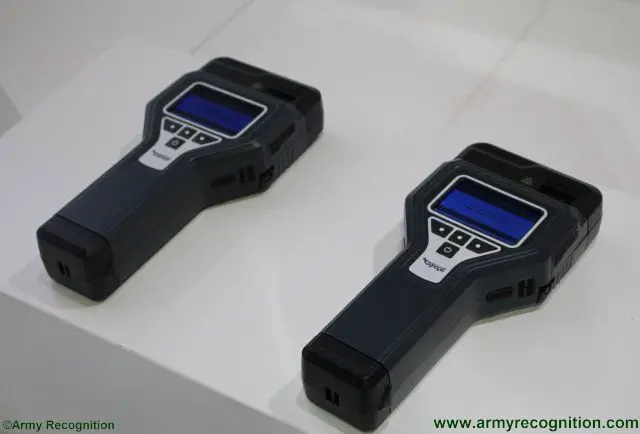Breaking news
Poly Technologies unveils Dognose handeld explosives detector at IDEAS 2016.
 |
|||
|
Army Recognition
Online Show Daily News & Web TV IDEAS 2016 9th International Defence Exhibition & Seminar 22 to 25 November 2016 Karachi , Pakistan |
|||
|
Poly Technologies at IDEAS 2016
|
|||
|
|
|||
|
|
|||
|
Poly Technologies unveils Dognose handeld explosives detector at IDEAS 2016
|
|||
|
Poly Technologies’ Dognose is a new generation of lightweight explosives detectors which adopts non-radioactive amplifying fluorescent polymer quenching technology to realize real-time detection of explosives in the air and carried by passengers or vehicles.
|
|||
|
|
|||
 Poly Technologies' Dognose explosive detector disclosed at IDEAS 2016 Poly Technologies' Dognose explosive detector disclosed at IDEAS 2016 |
|||
|
|
|||
|
The Dognose is designed to be widely used in public security, commercial facility security, border control, mass transit security and aviation security, security checks of large public events as well as counter terrorism and special operations to effectively prevent explosions.
Poly Technologies’ Dognose only weight 1.2 kg, or ¼ of the common existing products. Its sensitivity reaches the pictogram level, thanks to a testing strip analyzing both wipe and vapour in less than 8 sec. Explosives detected include TNT, DNT, RDX, PETN, Semtex, black powder, Comp B, C4, Tetry, Det. Cord., and non military explosives like AN, Urea Nitrate and Nitrate precursor compounds. The detection process is realized without radioactive substance but with a single molecular binding event which quenches the fluorescence of many chromophores and amplifies the chemosensory response by order of magnitude. Its 12VCD Lithium ion battery gives it a working endurance of more than 8 hours. The Dognose can be used through two detecting modes with different levels of sensitivity to avoid any false alarm. The inspection mode 1 can be used on high security scenarios, for example Olympic Games, for a low escaping inspection rate. The inspection mode 2 is used to avoid low false alarm rate. It can be used in large-passenger-flow scenarios, for example in an airport or in railway stations. |
|||



















